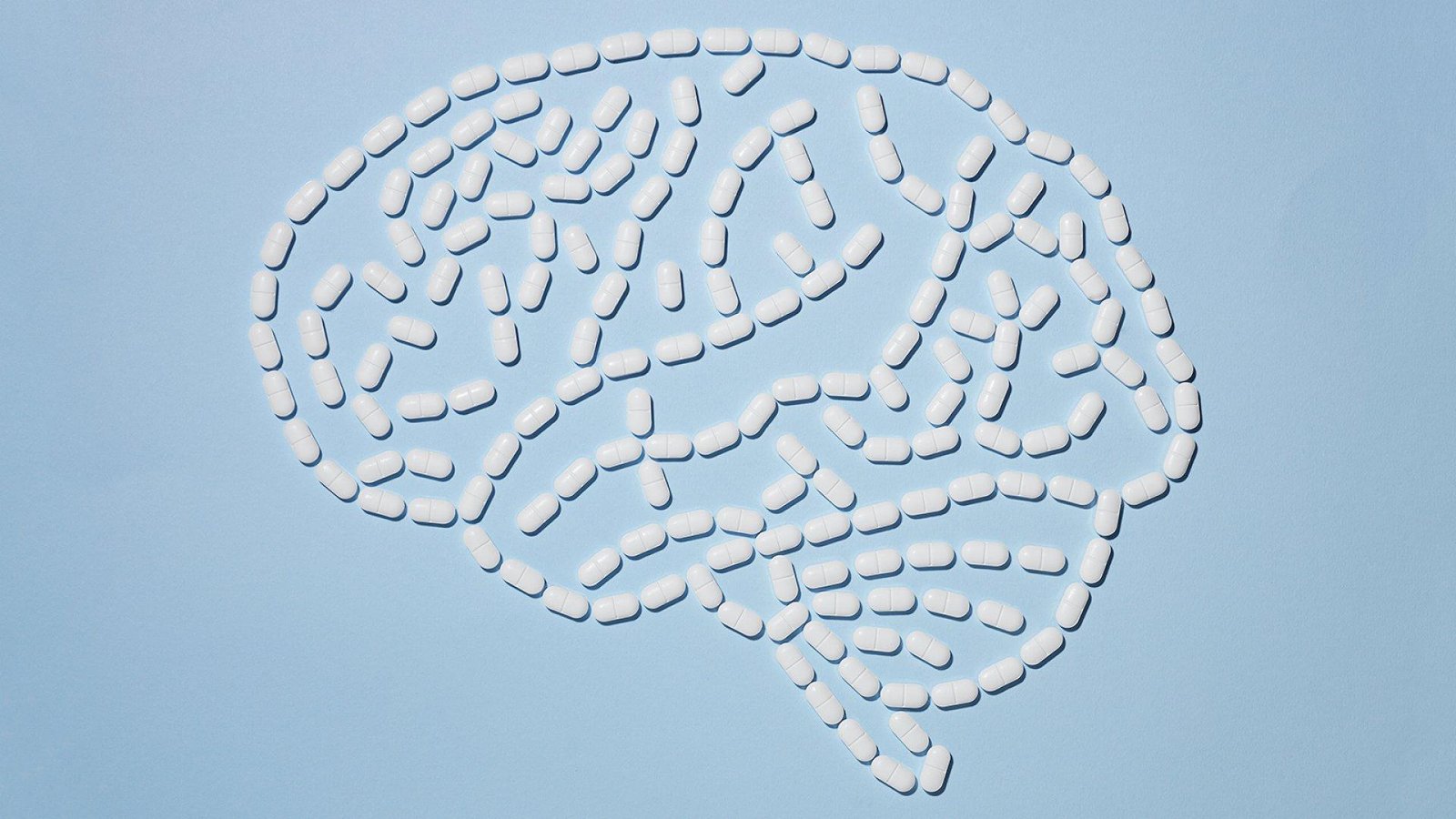Brain supplements, also known as nootropics or cognitive enhancers, are substances designe to boost cognitive functions such as memory, focus, creativity, and overall brain health. They come in various forms, including vitamins, minerals, herbal extracts, amino acids, and synthetic compounds.
Some of the most popular brain supplements include:
- Ginkgo Biloba: Derived from the leaves of the Ginkgo tree, this herbal supplement is believ to improve memory and cognitive speed.
- Omega-3 Fatty Acids: Found in fish oil, omega-3s are thought to support brain health and improve mood.
- Caffeine: Known for its stimulating effects, caffeine is use to increase alertness and concentration.
- Bacopa Monnieri: An herb used in traditional medicine, Bacopa is believe to enhance memory and reduce anxiety.
- Rhodiola Rosea: This adaptogen is said to improve mental performance and reduce fatigue.
- Waklert (Armodafinil): A synthetic nootropic, Waklert is use to enhance wakefulness and cognitive function, often prescrib for narcolepsy and other sleep disorders.
The Science Behind Brain Supplements
The effectiveness of brain supplements varies widely, and their impact on cognitive function is a topic of ongoing research. Let’s break down the science behind some commonly use ingredients, including Waklert:
1. Ginkgo Biloba
Ginkgo Biloba has been use in traditional medicine for centuries. Research suggests that it may improve blood flow to the brain and has antioxidant properties. However, studies on its cognitive benefits have yielde mixe results. While some research indicates that Ginkgo may help with memory in older adults, other studies find minimal impact on cognitive function.
2. Omega-3 Fatty Acids
Omega-3 fatty acids, particularly EPA and DHA found in fish oil, are crucial for brain health. They are integral components of neuronal membranes and have anti-inflammatory effects. Research supports the idea that omega-3s can support cognitive function and may help protect against age-related decline. However, the benefits are often more pronounced in individuals with deficiencies or those at risk of cognitive decline.
3. Caffeine
Caffeine is well-known for its stimulating effects. It blocks adenosine receptors in the brain, which helps increase alertness and reduce fatigue. Studies show that caffeine can improve short-term memory, attention, and mood. However, its effects are temporary, and excessive consumption can lead to negative side effects such as anxiety and disrupte sleep.
4. Bacopa Monnieri
Bacopa Monnieri has been use in Ayurvedic medicine for its cognitive-enhancing properties. Some studies suggest that Bacopa may improve memory and cognitive performance, particularly in older adults. The mechanism is believe to involve the modulation of neurotransmitter levels and reduction of oxidative stress. Nonetheless, more research is need to confirm these benefits.
5. Rhodiola Rosea
Rhodiola Rosea is an adaptogen that is said to help the body cope with stress and fatigue. Some studies suggest it may improve mental performance and reduce fatigue, particularly under stressful conditions. However, more high-quality research is need to establish its effectiveness and safety.
6. Waklert (Armodafinil)
Waklert 150 Mg Tablets , containing Armodafinil, is a synthetic nootropic use primarily to treat sleep disorders like narcolepsy and obstructive sleep apnea. It promotes wakefulness and has cognitive-enhancing effects. Research indicates that Armodafinil can improve alertness, attention, and executive function in both sleep-deprive and healthy individuals. Its effects are generally considere more potent compare to natural supplements like caffeine.
Armodafinil works by affecting neurotransmitters in the brain, including dopamine and norepinephrine, which play roles in wakefulness and cognitive function. Although it is effective for improving cognitive performance, especially in sleep-deprive individuals, its use should be monitore carefully due to potential side effects and legal considerations.
The Placebo Effect and Cognitive Enhancement
One of the critical factors in evaluating the effectiveness of brain supplements is the placebo effect. Many users report improve cognitive function after taking supplements, but this could be due to their belief in the supplement’s efficacy rather than its actual impact. The placebo effect can significantly influence perceive cognitive performance, making it challenging to assess the true effectiveness of these supplements.
Risks and Considerations
While brain supplements can offer potential benefits, they are not without risks. Here are some considerations:
1. Quality and Purity
The supplement industry is not as tightly regulate as pharmaceuticals, leading to variability in product quality and purity. Some supplements may contain contaminants or inaccurate dosages, which can pose health risks. It is crucial to choose supplements from reputable brands and consult with a healthcare provider.
2. Side Effects
Even natural supplements can cause side effects. For example, excessive caffeine can lead to insomnia, anxiety, and increased heart rate. Ginkgo Biloba may interact with blood-thinning medications, and Bacopa Monnieri can cause gastrointestinal issues in some individuals. Armodafinil, while effective, can cause side effects such as headache, nausea, and potential dependency if not use as prescribe.
3. Interactions with Medications
Brain supplements can interact with prescription medications, potentially reducing their effectiveness or causing adverse effects. It is essential to consult a healthcare provider before starting any new supplement, especially if you are taking other medications or have underlying health conditions.
4. Long-Term Effects
The long-term effects of many brain supplements are not well understood. While short-term benefits may be observe, the impact of prolonge use on overall health and cognitive function requires further investigation.
Balancing Brain Supplements with Lifestyle Factors
It’s important to remember that brain supplements should not be seen as a replacement for a healthy lifestyle. Factors such as proper diet, regular exercise, adequate sleep, and mental stimulation play crucial roles in maintaining cognitive health. Brain supplements can be a part of a holistic approach to brain health, but they are not a panacea.
The Future of Brain Supplements
The field of cognitive enhancement is rapidly evolving, with ongoing research exploring new compounds and formulations. Advances in neuroscience and pharmacology may lead to more effective and safer brain supplements in the future. However, until more conclusive evidence is available, it is essential to approach brain supplements with caution and maintain realistic expectations.
Conclusion
Brain supplements, including synthetic options like Waklert (Armodafinil), often markete as smartness hackers, hold promise for enhancing cognitive function, but their efficacy varies and is influenced by individual factors. While some supplements may offer benefits, their impact is often modest and should be considere alongside other lifestyle factors. As with any health-relate intervention, it is crucial to approach brain supplements with a critical mind and consult with healthcare professionals to make informe decisions.
In the end, the quest for smarter, sharper cognitive function is a multifacete journey that involves a balance approach to diet, exercise, sleep, and mental well-being. Brain supplements can be a tool in this journey, but they are not a substitute for a healthy lifestyle.




